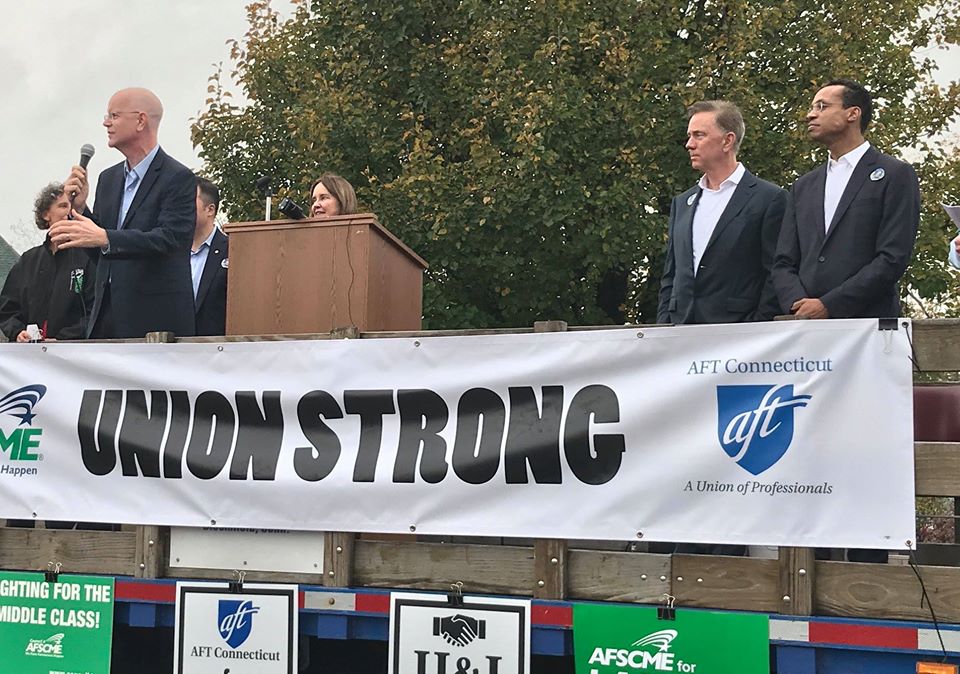State unions filed an injunction in Hartford Superior Court against Gov. Ned Lamont’s administration, fighting what they perceive as a grave injustice perpetrated by the governor through his mandate that employees return to the office and are only allowed teleworking from home 50 percent of the time with their managers’ approval.
The State Employees Bargaining Agent Coalition (SEBAC) claims employees will “suffer irreparable harm,” if “union members will be denied telework opportunities.” They claim the court is the only venue that could offer timely and appropriate relief.
Connecticut’s labor laws often favor unions and provide a process to adjudicate disagreements through binding arbitration. In fact, SEBAC indicates in their filings that “on or about July 2, 2021, a grievance under the parties’ collective bargaining agreement, as well as a prohibited practice,” was filed. These actions will give the union two bites at the apple allowing their issue to heard by two different venues.
A grievance usually indicates that there is a direct violation to specific contract terms or a policy. While a prohibited practice usually cites a violation of labor law or a unilateral change in working conditions. Both tracks can lead to a decision that binds both parties.
The key reasons for having these administrative processes in place is to reduce costs and free up the courts for more important issues. Generally accepted legal practice dictates that the union or the state would have to exhaust their administrative remedies before running to the court steps.
So why the haste to run to court? Court injunctions are often costly, hard fought and not easily won. SEBAC will have an uphill battle to not only establish irreparable harm, but they will also have to demonstrate the likelihood that they would prevail on the merits without the benefits of an established and complete court record.
The truth, more likely, is that this is a fishing expedition by the unions and if the state takes the bait, it will be the taxpayers who are on the hook. The injunction is nothing more than a negotiating tactic to create a perceived problem and have the state rush in to negotiate against itself.
The public narrative crafted by the union follows the standard playbook. Start with an emotional appeal. It would be difficult to garner public support for state employees to stay home 100 percent of the time when the taxpayers demand responsive and responsible government and are, themselves, returning to the office.
So, how can the unions change that narrative away from the real issue?
The unions’ press release turns the narrative to focus on the environment. Out of thin air they focus on, “improved air quality,” “reduced carbon emissions,” and the “existential crisis,” of climate change. Yes, we all want a clean environment and that’s where the union hopes to end the conversation.
It is not surprising that absent from their court filings are any mention of climate change, air quality or any statement that requiring workers to go to work would result in irreparable harm to the environment.
That’s because the purpose behind SEBAC’s legal action has nothing to do with climate change and everything to do with the negotiations currently taking place behind closed doors between the governor and state employee unions concerning new labor contracts.
The lawsuit gives the unions a bargaining chip when they have few at their disposal and Lamont has several: the layoff protections guaranteed to state employees under the 2017 SEBAC agreement have expired, the state is facing a retirement cliff of potentially thousands of employees and the governor hired the Boston Consulting Group to document how the state can streamline services and save money in the wake of that loss.
SEBAC is not happy about any of this. They have actively opposed any efforts to study how Connecticut could function with fewer employees if they choose to retire.
Conversely, the lawsuit gives the Lamont administration the ability to conceivably cave to the demands of the unions who backed his 2018 gubernatorial bid while still claiming victory if SEBAC drops the lawsuit in exchange for another round of pay increases, more employee hiring or dropping potentially cost-saving efficiency measures.
As a past chief negotiator and union president I have found unions tend to come to the table better prepared and will use all lawful measures to push their agenda.
In other words, the unions are always playing chess, while far too often state and municipal officials are playing checkers, hindered by department heads and elected officials who lack training and fail to understand the nuances of collective bargaining agreements and the complexities of labor law.
With another gubernatorial election around the corner, this could be a bit of political sleight-of-hand designed to deceive the public into thinking whatever agreement reached between the governor and SEBAC is a hard-fought victory.
Despite the disagreements between Lamont and union leaders over taxation issues, the governor wants and needs their support, and the unions will back whomever they think will give them the best deal when it comes to contract negotiations.
This lawsuit has little to do with teleworking and certainly nothing to do with climate change. Rather, it gives both parties a path to agreement that will benefit both while pulling the wool over the eyes of voters and taxpayers.


Thad M Stewart
July 30, 2021 @ 3:09 pm
The state unions get across the board raises, as the gubner shuts down all small business. Who does he think pays for the unions? Never on time, never on budget, the unions must go.